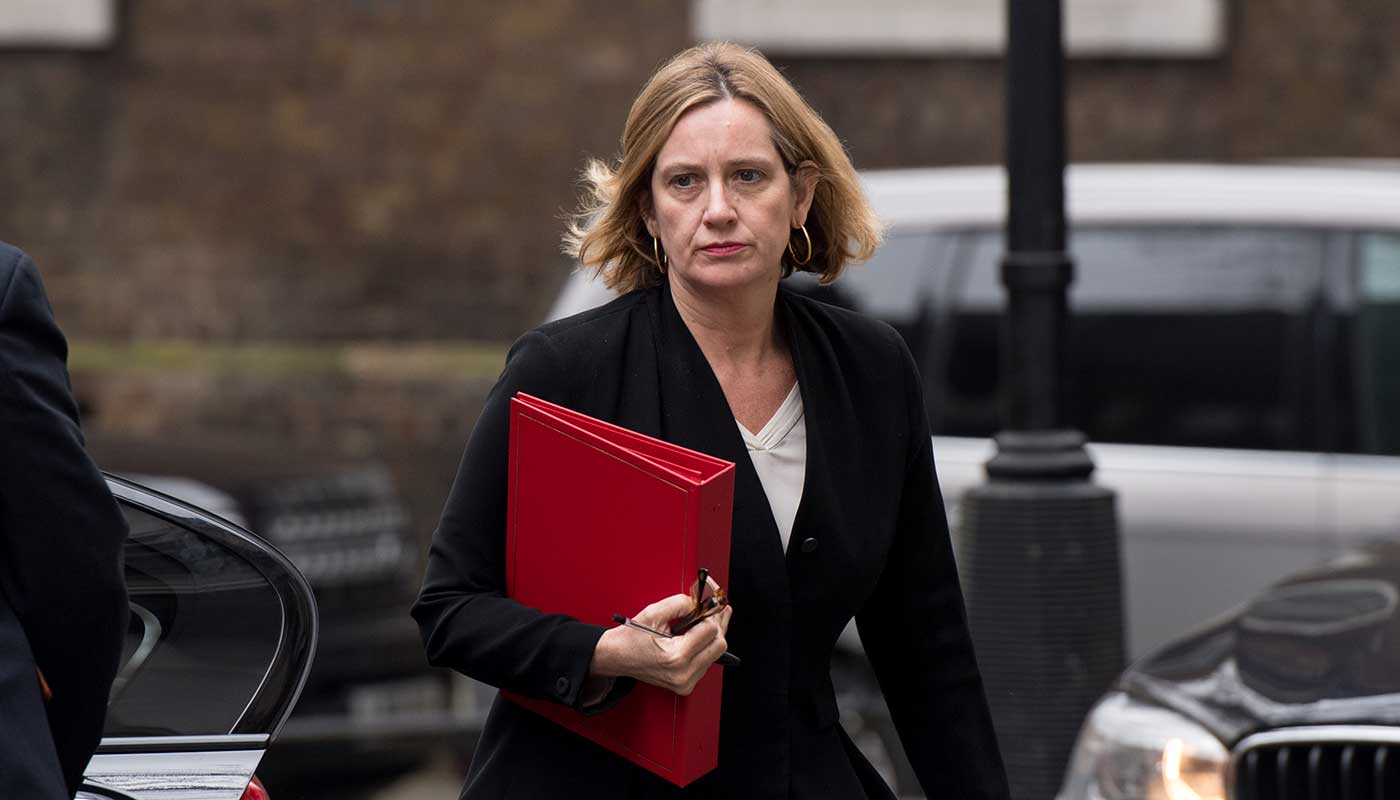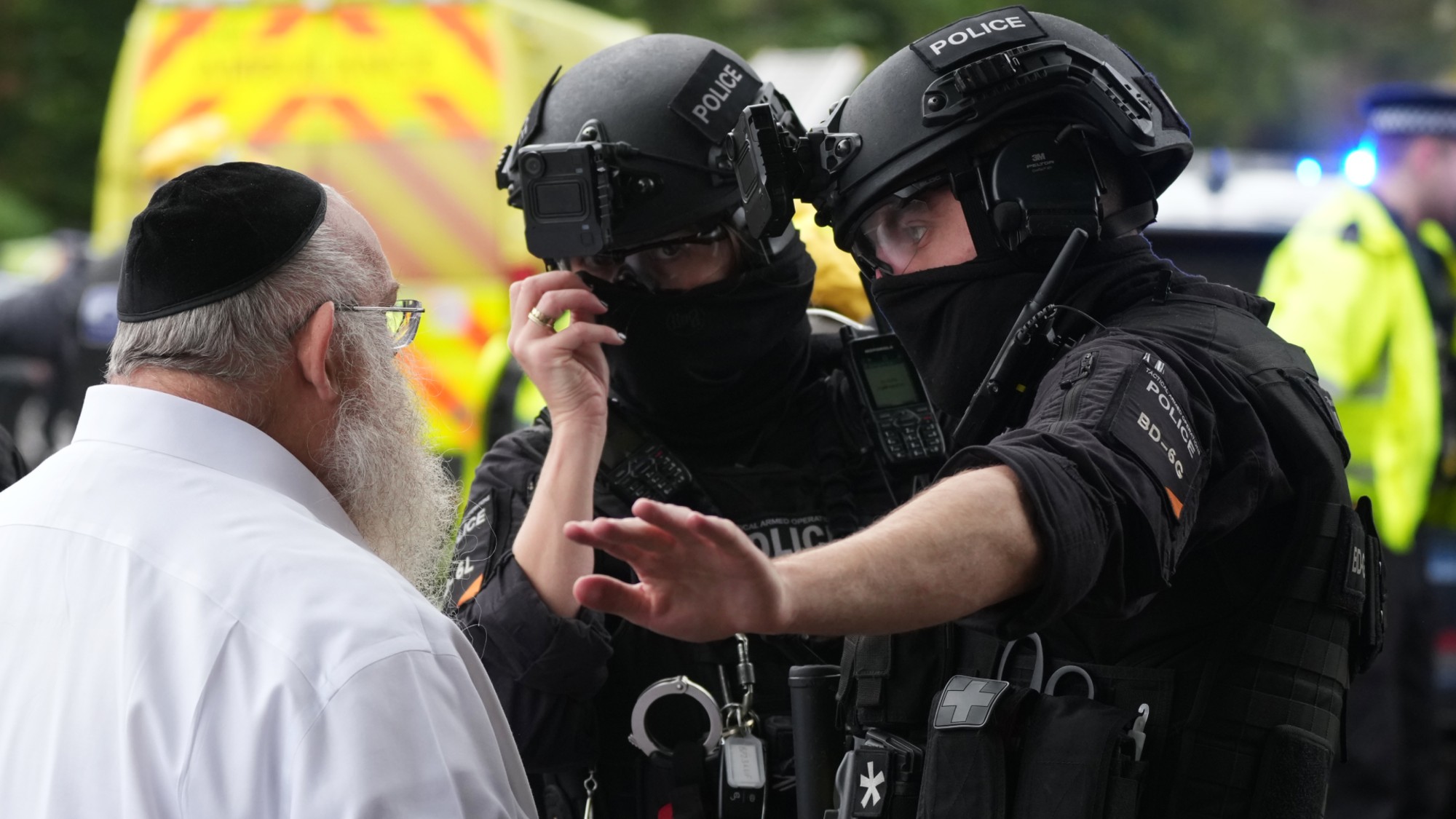Police to get new powers to tackle terrorism
The Home Office is planning a renewed focus on ‘communities where the threat is highest’

A free daily email with the biggest news stories of the day – and the best features from TheWeek.com
You are now subscribed
Your newsletter sign-up was successful
Leaked documents show police are to be given tough new powers to tackle terrorism – and there will be a renewed focus on prevention in particular communities – in measures to be announced by Home Secretary Amber Rudd.
What has been leaked?
A 120-page draft of the Government’s new terror strategy has been passed to The Sunday Times. The finished document is due to be published in the next few weeks and will outline a proposed counterterrorism bill.
The Week
Escape your echo chamber. Get the facts behind the news, plus analysis from multiple perspectives.

Sign up for The Week's Free Newsletters
From our morning news briefing to a weekly Good News Newsletter, get the best of The Week delivered directly to your inbox.
From our morning news briefing to a weekly Good News Newsletter, get the best of The Week delivered directly to your inbox.
What are the proposals?
Rudd is proposing “longer prison sentences” for people convicted of terror offences – and more intensive monitoring of their movements and communications after they are released?
What about police?
Police and the security services will be given the power to warn government departments, Scottish and Welsh politicians and local authorities about individuals they consider suspicious. They will be able to do so even before suspects have been placed on the MI5 watch list.
A free daily email with the biggest news stories of the day – and the best features from TheWeek.com
Anything else?
Rudd wants to increase security at sporting events and concerts, focus on detecting British jihadis trying to get work at airports and – in the light of the Salisbury poisoning – improve the detection of “terrorist activity involving chemical, biological, radiological, nuclear and explosives material”.
Will there be more staff?
The document says Rudd wants to “recruit and train over 1,900 additional staff across the security and intelligence agencies”.
What is the controversial aspect?
The Sunday Times says the document calls for more focus on “communities where the threat from terrorism and radicalisation is highest”, and points out that the existing Prevent strategy has been divisive, with Muslims complaining their community is unfairly singled out.
Will the plan be popular?
It is likely to enhance Rudd’s standing with the Tory grassroots, says the newspaper, but “could reinforce the view of some minorities about government hostility towards them”.
-
 What are the best investments for beginners?
What are the best investments for beginners?The Explainer Stocks and ETFs and bonds, oh my
-
 What to know before filing your own taxes for the first time
What to know before filing your own taxes for the first timethe explainer Tackle this financial milestone with confidence
-
 The biggest box office flops of the 21st century
The biggest box office flops of the 21st centuryin depth Unnecessary remakes and turgid, expensive CGI-fests highlight this list of these most notorious box-office losers
-
 How the ‘British FBI’ will work
How the ‘British FBI’ will workThe Explainer New National Police Service to focus on fighting terrorism, fraud and organised crime, freeing up local forces to tackle everyday offences
-
 How the Bondi massacre unfolded
How the Bondi massacre unfoldedIn Depth Deadly terrorist attack during Hanukkah celebration in Sydney prompts review of Australia’s gun control laws and reckoning over global rise in antisemitism
-
 Who is fuelling the flames of antisemitism in Australia?
Who is fuelling the flames of antisemitism in Australia?Today’s Big Question Deadly Bondi Beach attack the result of ‘permissive environment’ where warning signs were ‘too often left unchecked’
-
 Ten years after Bataclan: how has France changed?
Ten years after Bataclan: how has France changed?Today's Big Question ‘Act of war’ by Islamist terrorists was a ‘shockingly direct challenge’ to Western morality
-
 Arsonist who attacked Shapiro gets 25-50 years
Arsonist who attacked Shapiro gets 25-50 yearsSpeed Read Cody Balmer broke into the Pennsylvania governor’s mansion and tried to burn it down
-
 Manchester synagogue attack: what do we know?
Manchester synagogue attack: what do we know?Today’s Big Question Two dead after car and stabbing attack on holiest day in Jewish year
-
 The Miami Showband massacre, 50 years on
The Miami Showband massacre, 50 years onThe Explainer Unanswered questions remain over Troubles terror attack that killed three members of one of Ireland's most popular music acts
-
 The failed bombings of 21/7
The failed bombings of 21/7The Explainer The unsuccessful attacks 'unnerved' London and led to a tragic mistake